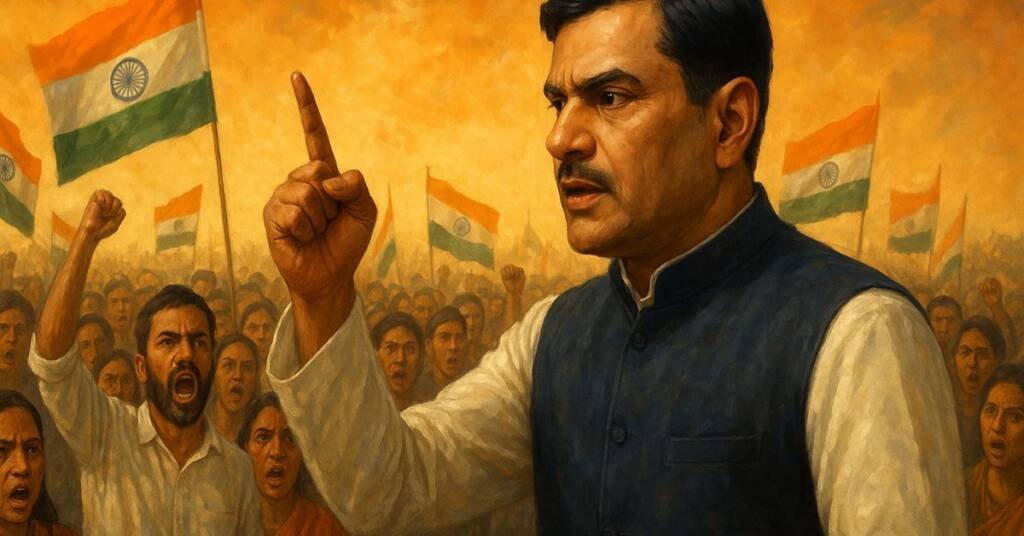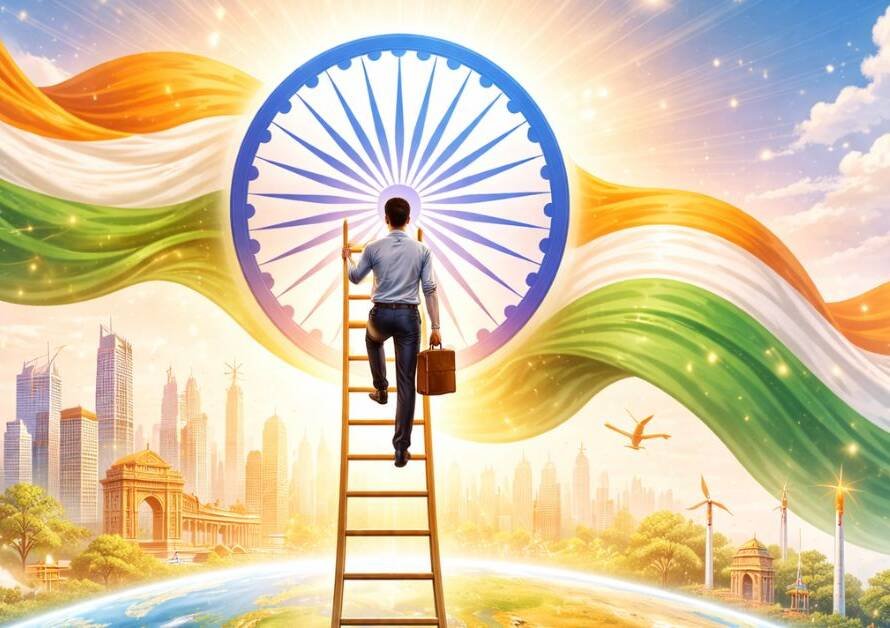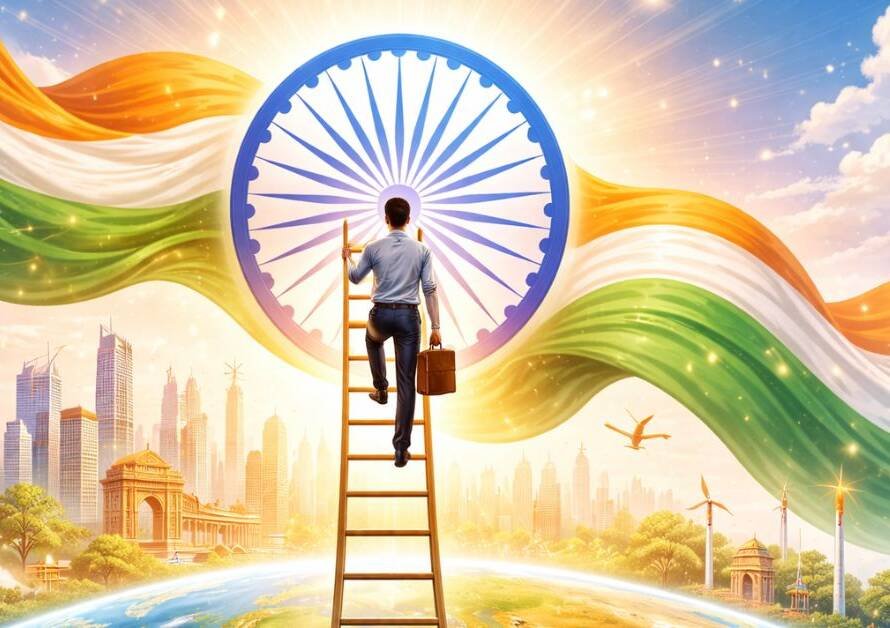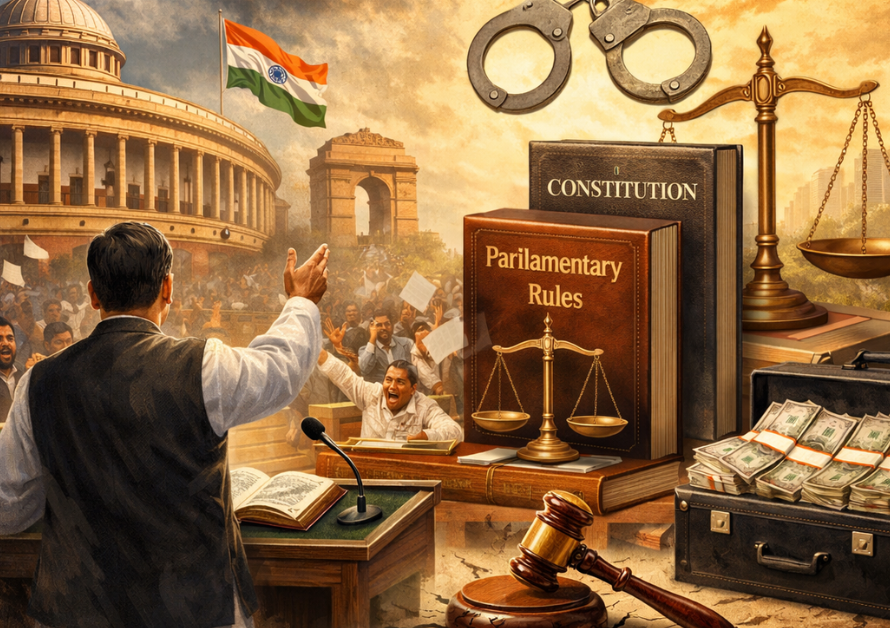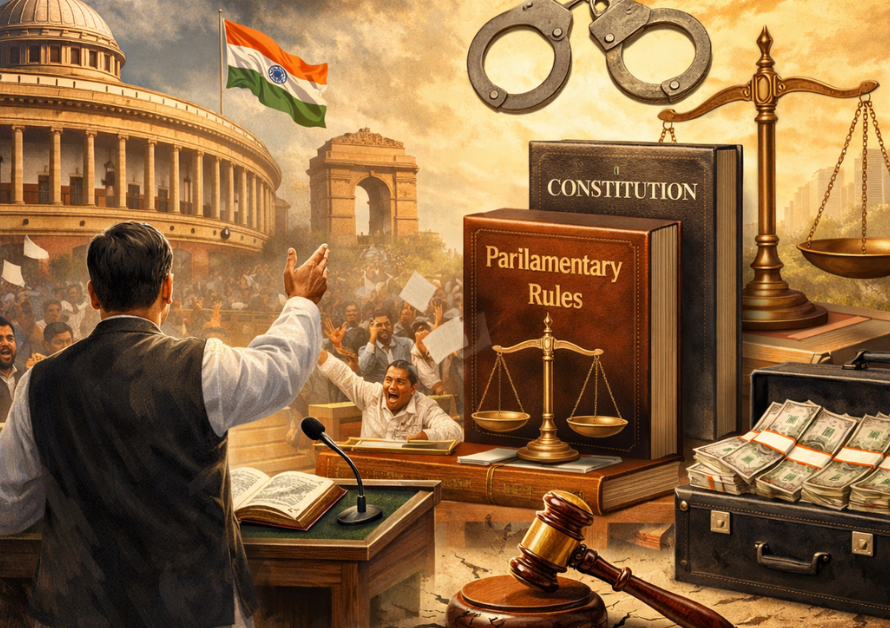The Fall of India’s Opposition
1. The Glorious Past of the Opposition: When Ideology Meant Integrity
- There was a time in Indian politics when opposition meant strength, substance, and values.
- Great leaders like Ram Manohar Lohia, Shyama Prasad Mukherjee, Deendayal Upadhyaya, Mahavir Tyagi, Prakashvir Shastri, Tarakeshwari Sinha, Atal Bihari Vajpayee, Lal Krishna Advani, George Fernandes, Madhu Limaye, Sushma Swaraj, Raj Narayan, P. K. Deo, Jyoti Basu, Charan Singh, Madhu Dandavate, Surjeet Singh, Chandrashekhar, Ramdhan, Somnath Chatterjee, and Mohan Dharia—represented a generation that embodied the soul of democracy.
- They were not driven by greed for power but by a desire to serve Bharat Mata.
- These leaders made Parliament a temple of debate, not a circus of slogans. Their speeches were rich in intellect, ethics, and patriotism.
- Even the Prime Ministers of those times prepared themselves thoroughly before facing the opposition in Parliament.
- Democracy thrived because the opposition held the government accountable with logic, not with lies and abuse.
2. From Opposition to Opportunism: The Fall in Values
Today’s opposition stands as a caricature of that golden era.
- Gone are the days when opposing the government meant serving the people. Today it means opposing the nation itself.
- The current opposition has no ideology, no moral compass, and no constructive agenda—only hatred for Modi and desperation for power.
- The Congress, once the grand old party of freedom fighters, has now become a family business, run by a leadership that has neither vision nor wisdom.
- Shashi Tharoor, Sharad Pawar, Priyanka Chaturvedi, Anand Sharma, Ghulam Nabi Azad, Manish Tiwari—capable voices—were sidelined for daring to think independently.
- In today’s Congress, only “Yes-men” survive; thinkers are punished.
- Jyotiraditya Scindia, once seen as a bright young leader, was humiliated until he left.
- The incident when Rahul Gandhi mockingly offered biscuits to Himanta Biswa Sarma was not just arrogance—it was symbolic of Congress’s utter disrespect for capable leaders.
- Sachin Pilot, too, has been put into political deep-freeze for showing potential leadership qualities.
3. Comparing Then and Now: From Patriots to Power-Hungry Politicians
Compare the old opposition with today’s:
- Those days—Leaders like Lohia, Vajpayee, Advani—stood for national interest.
- Today—leaders like Lalu Yadav, Akhilesh Yadav, Mayawati, Mamata Banerjee, Tejashwi Yadav, Sanjay Raut stand for caste, vote-bank, and corruption.
- Where once the opposition worked as a watchdog of democracy, today it acts as a cheerleader for anti-national forces.
- Many of today’s opposition leaders openly support terror sympathizers, tukde-tukde gangs, and foreign propaganda agencies that aim to destabilize Bharat.
- The intellectual bankruptcy is so deep that the opposition now depends on fake narratives, foreign lobbying, and social media manipulation instead of real public service.
- Even the Muslim leadership within opposition, once politically mature, has now degraded to communal rabble-rousing—with Owaisi being their only loud voice, driven not by reform but by religious polarization.
4. When True Leadership Emerged — Modi as the Fulfillment of the People’s Hope
- The irony of history is that the dreams we had from past leaders—of a clean, strong, visionary governance—were ultimately fulfilled not by them but by Narendra Modi.
- Modi rose not from privilege but from the soil of Bharat, symbolizing hard work, nationalism, and unwavering commitment.
- When people once went to listen to the opposition hoping for change, it is Modi who delivered that change—through decisive leadership, corruption-free governance, global recognition, and empowerment of every section of society.
- What earlier opposition leaders only promised, Modi implemented—be it development, good governance, welfare for the poor, or the rise of Bharat’s global stature.
- The Modi era has revived the spirit of nationalism, restored pride in Hindu identity, and strengthened Bharat’s democratic institutions.
5. The Need for a Real Opposition — Not an Anti-National One
- A healthy democracy requires a constructive, nationalistic opposition, not one that conspires with foreign media or Islamist networks.
- But the current opposition has reduced itself to spreading lies, abusing Modi, and dividing Hindus for votes.
- Instead of questioning policies, they question India’s sovereignty. Instead of supporting progress, they support protests that harm the nation.
- What Bharat needs is not an opposition that wants to break India, but one that wants to build Bharat stronger.
- Sadly, the present opposition is not ready for introspection—it only thrives on hate, chaos, and deception.
6. Bharat Needs Dharma-Based Politics Again
The contrast between past ideals and present reality is painful.
- The great opposition leaders of the past worked for the people, not against the nation.
- Today’s opposition, in its hunger for power, is behaving like the Kauravas of Mahabharata—uniting all Adharmic forces to overthrow the Pandavas of truth and patriotism.
- Like the Pandavas, the nationalists and Sanatanis may seem fewer, but they walk the path of Dharma—guided by truth and righteousness.
- What Bharat now needs is a modern-day Krishna—a guiding force who can enlighten, awaken, and lead the forces of Dharma to victory over the darkness of deceit and division.
- The stage is set for a new Mahabharata of ideas, where truth, unity, and Sanatana Dharma will once again triumph over lies, corruption, and chaos.
🇮🇳Jai Bharat, Vandematram 🇮🇳
For old Blogs please visit our website www.saveindia108.in
👉Join Our Channels👈

